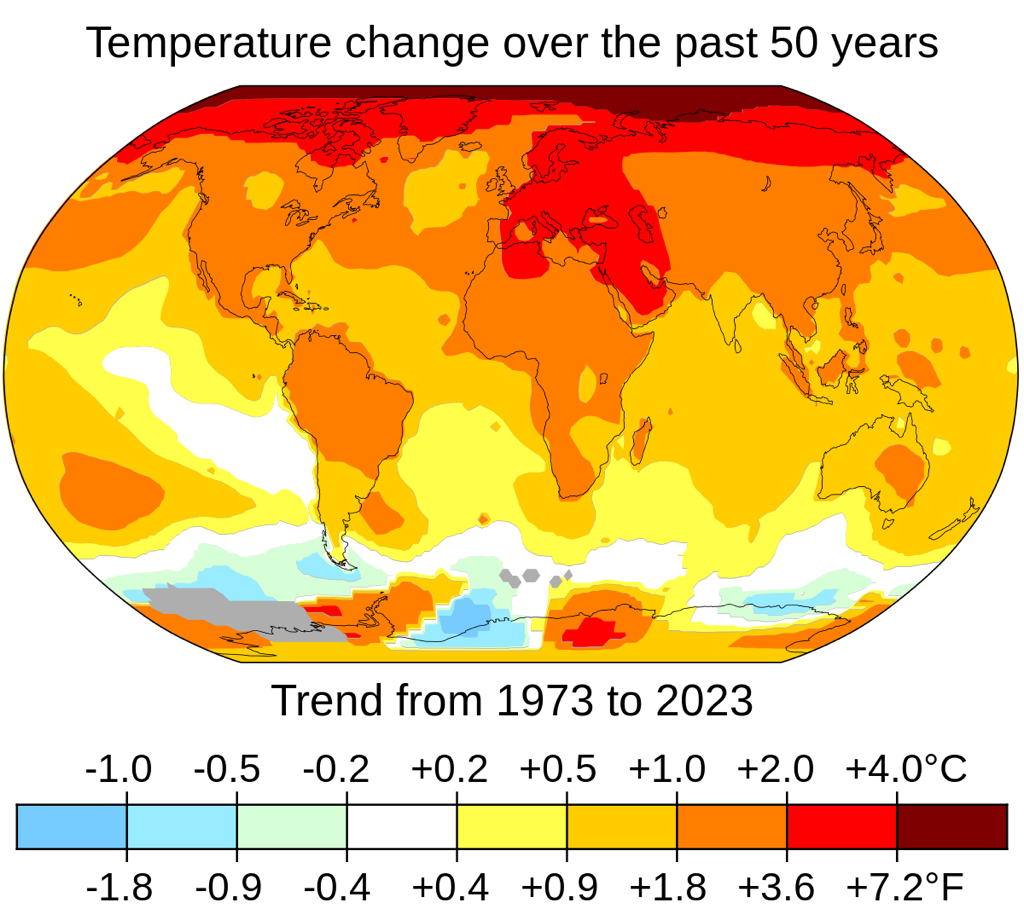
There are some that believe either that the facts that the earth is warming aren’t true, or give it different interpretations, such as this warming being due to a natural cycle in Earth’s climate, despite all the scientific consensus to the contrary.
These people are frequently referred to as climate deniers.
There are some who believe there may be a problem but it’s too early to determine the best response, so we should wait before rushing ahead.
These are the climate delayers.
However, the vast majority accept that there is a significant problem but feel powerless to take action. Climate change is too large and scary an idea to understand, and people use denial as a defence mechanism.
Balancing our response to climate change involves a challenging trade-off between immediate gains and long-term benefits. This trade-off is particularly difficult because our natural tendency is to prioritise short-term advantages regarding transport, consumption and living habits that lead to carbon emissions.
The solution is not to force individuals into lifestyle choices that might be expensive, constraining and hard. Rather it is for governments to accept the up-front costs of investment in a cleaner, better (and cheaper) future, and to ensure that the environmental costs of greenhouse gas emission are borne by the producers.
Whether one is a liberalist free-marketeer, or a believer in the state playing a significant role, we expect the state to protect its citizens. Climate change is the number one threat to world stability and safety, and it is time governments stood up to the challenge.
Governments can, and do, direct funding to those areas they believe beneficial to the community at large, and levy charges (through taxes) on those areas that are deemed harmful. For instance, tobacco companies are restricted on how they can advertise their products, and taxes are levied against their sales.
Unfortunately, this is happening slowly, if at all, with the major producers of greenhouse gas-producing products, the oil, gas and coal companies. Indeed, the opposite is the case. Globally, fossil fuel subsidies were $7 trillion or 7.1 percent of GDP in 2022. Underpricing for local air pollution costs and climate damages are the largest contributors to global fossil fuel subsidies, accounting for about 30 percent each, followed by explicit subsidies (18 percent), and broader road transport externalities such as congestion and road accidents (17 percent).
According to the IMF, not known for its radical views, raising fuel prices to their fully efficient levels is estimated to reduce projected global fossil fuel CO2 emissions by 43 percent below baseline levels in 2030—or 34 percent below 2019 emissions. This reduction is in line with the 25-50 percent reduction in global GHGs below 2019 levels needed by 2030 to be on track with containing global warming to the Paris goal of 1.5-2°C.
So, charging the full cost for fossil fuels would be sufficient, on its own, to reduce greenhouse gas emissions to the level required to meet Paris 2015 goals.
In addition, full price reform would raise revenues of $4.4 trillion, 3.6 percent of global GDP, in 2030 (relative to baseline levels and accounting for revenue losses due to erosion of pre-existing fuel tax bases). This would be broadly in line with the additional spending needs for Sustainable Development Goals, with no added costs to consumers.
The solution appears simple. Tax fossil fuels at the level that balances their climate damage and use the revenues to switch to sustainable development. Why isn’t this happening? Perhaps we should ask the fossil fuel companies and those who take their inducements.
Phil Shotton, Ramsgate Society Lead on Environment and Climate Change
IMF data from https://www.imf.org/en/Topics/climate-change/energy-subsidies